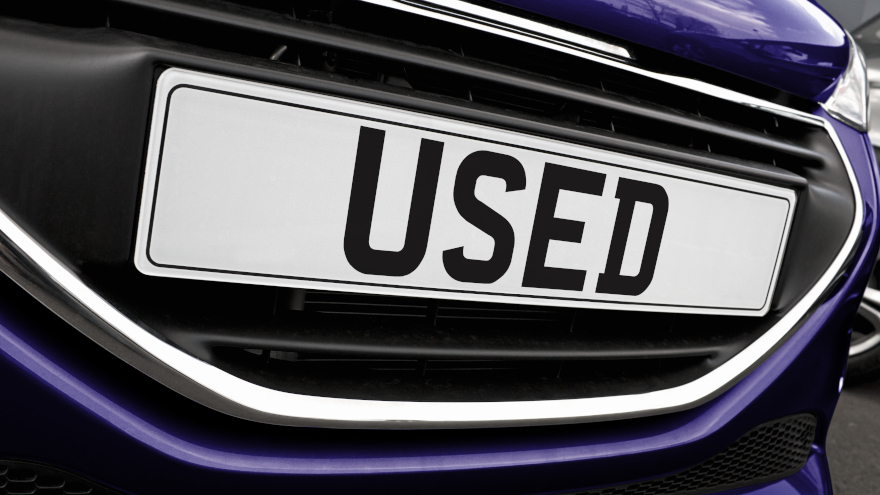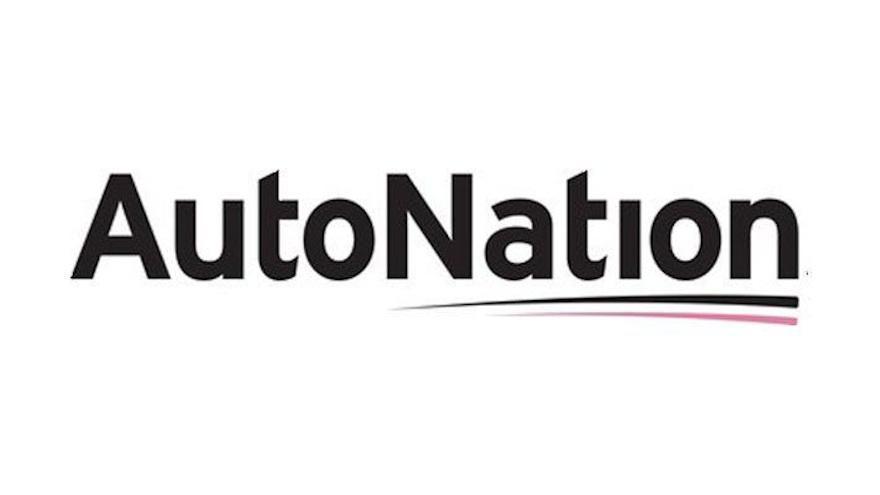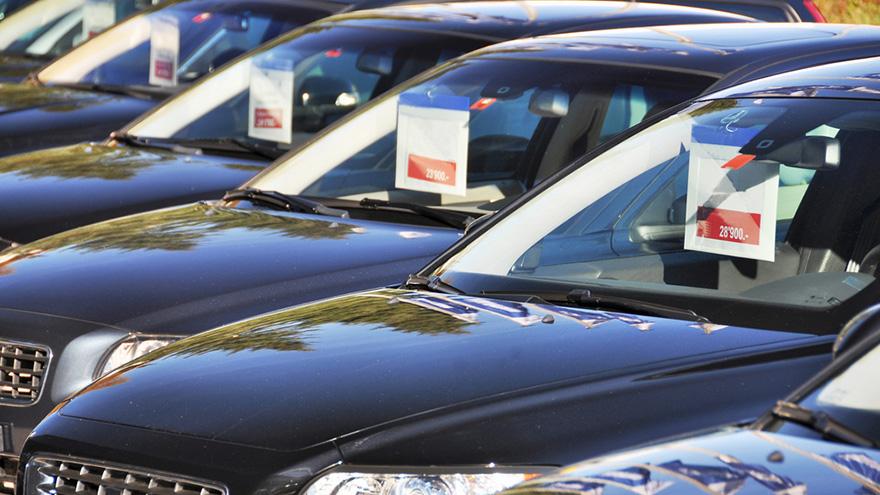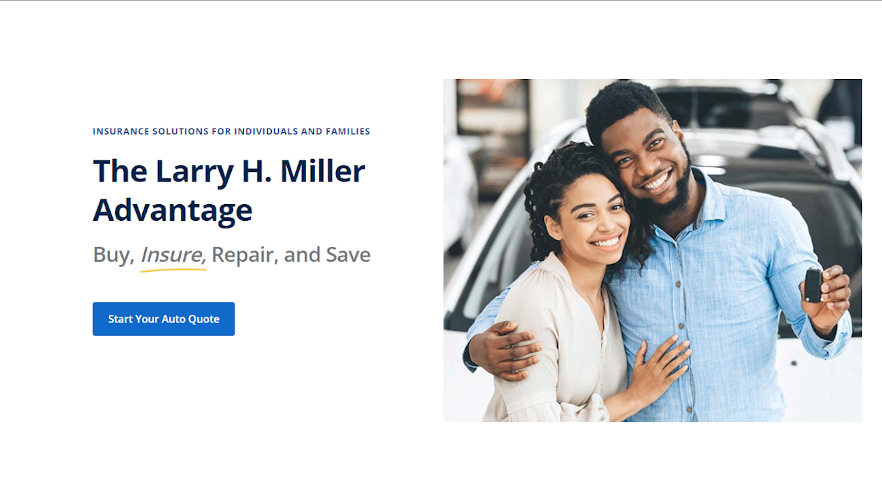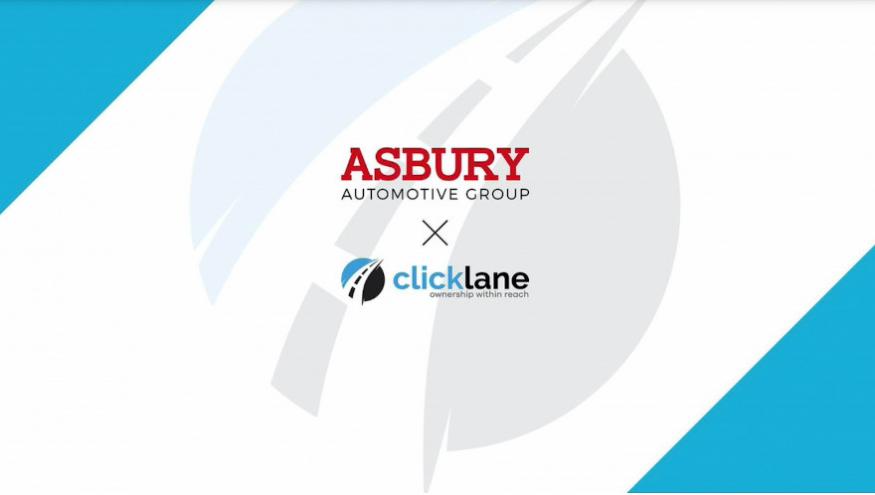AutoNation sold fewer retail used vehicles last year, but closed 2020 with a bump in pre-owned sales during the fourth quarter.
And the dealer group’s used-vehicle retail sales were more profitable.
Here’s a recap of some of the used-car specifics in AutoNation’s full-year and Q4 earnings released Tuesday, including what it has in store for its standalone pre-owned program.
Used sales finish strong
Though down 2% for the year with 241,182 units sold, AutoNation’s retail used-vehicle sales climbed 4.2% in the fourth quarter, as the dealer group moved 61,526 units to close 2020, it said in an earnings release.
In the fourth quarter, retail used revenue was up 11.9% at $1.415 billion. For the year, it came in at $5.261 billion for a 1.9% gain.
AutoNation pulled in used retail gross profits of $96.4 million in the fourth quarter, a 14.2% year-over-year increase.
For the year, used retail gross profits came in at $414.5 million, a 19.5% uptick.
Gross profit per used vehicle retailed in Q4 was at $1,567, up 9.6%. For the year, it climbed 22%, coming in at $1,719.
Plans for AutoNation USA & more
As far as its standalone used-car store program, the retailer intends on opening five AutoNation USA locations this year, including two stores in Denver and one store each in Austin, Texas; Phoenix; and San Antonio.
Ten stores are planned for 2022.
All told, AutoNation has its eyes on building more than 100 of these pre-owned stores, including more than 50 by end of 2025.
And as reported previously in Auto Remarketing, AutoNation said Tuesday has finished selling off its stake in online retailer Vroom, an investment that ultimately resulted in a $165 million cash gain for the largest dealership group in the U.S.
The auto retailer also named a new chairman of its board: Rick Burdick, who was elected by the board and succeeded Mike Jackson, who remains chief executive officer.
AutoNation has finished selling off its stake in online retailer Vroom, an investment that ultimately resulted in a $165 million cash gain for the largest dealership group in the U.S.
That wasn’t the only major news announced Tuesday morning by AutoNation, which reported full-year and fourth quarter 2020 earnings.
The auto retailer has a new chairman of its board: Rick Burdick, who was elected by the board and succeeded Mike Jackson, who remains chief executive officer.
AutoNation had previously announced a board succession plan and its intention to separate the chairman and CEO roles.
Burdick became an AutoNation director in May 1991 and was named lead independent director in December 2018. Effective Monday, he is now independent chairman of the board.
Jackson remains a board member and CEO.
“The board is comprised of experienced and well-respected leaders who provide valuable and strategic guidance. I am excited about AutoNation's future,” Burdick said in a news release.
Jackson added, “AutoNation is well-positioned for the future. We remain focused and committed to delivering a peerless customer experience.”
More details on Vroom stake sale
As for the Vroom news, AutoNation sold 3.1 million shares of its Vroom stake in the fourth quarter. It resulted in $105 million in proceeds, with a cash gain of $78 million.
The overall cash gain from the Vroom investment was $165 million.
The initial investment in Vroom was announced in October 2018.
In what appears to be a growing pattern among the public retailers reporting earnings results thus far, Penske Automotive Group had lower used-vehicle retail volume, but their pre-owned operations were more profitable.
Below is a rundown of some of the used-car specifics in the group’s retail automotive operations results shared in its latest earnings report.
Overall (including U.S. and international results), Penske retailed 57,013 used units in the fourth quarter, a 12.7% decrease. Full-year used retail sales fell 17.8% to 233,469 units.
Penske generated $1.675 billion in used retail revenue for Q4, a 2.2% drop.
For the year, used retail revenue came in at $6.415 billion, an 11.4% decline.
However, Penske saw some strong signs on the used-car profitability and per-unit revenue fronts.
Retail used gross profits climbed 27% in the fourth quarter, coming in $104 million, with full-year numbers up 6.2% at $388.9 million.
Revenue per used vehicle retailed in Q4 ($29,380) was up 12%. The full-year amount ($27,476) was up 7.8%.
Penske pulled in gross profits of $1,823 per used vehicle retailed in Q4, a 45.3% spike. For full-year 2020, gross profit per used vehicle retailed climbed 29.3% to $1,666.
Used retail gross margins were at 6.2% in the fourth quarter, up from 4.8% a year earlier. Likewise, for full-year 2020, used retail gross margins came in at 6.1%, up from 5.1% for 2019.
Penske also has plans to broaden its used-car standalone stores. More details on that, and a rebrand within that program, can be found in a forthcoming Auto Remarketing story.
As far as its peers reporting results so far, Lithia Motors increased its used-vehicle retail revenue by 13.4% in 2020, and sold 7.5% more used retail units. The group also was making 12.8% more gross profit per unit on used retail sales.
Elsewhere, Asbury Automotive Group, which did see retail used sales and revenue decline, generated 20% stronger average gross profit per unit on used retail sales, with used retail gross margins climbing 60 basis points. Used retail gross profits were up 9% year-over-year for the dealership group.
Over at Group 1 Automotive, when isolated to U.S.-only numbers, the retailer posted used-vehicle retail sales revenues of $2.35 billion for full-year 2020, down from $2.51 billion a year earlier.
Group 1 retailed 108,411 used vehicles for the year, down from 121,016 in 2019.
Annual used retail gross profits climbed from $161.7 million to $162.8 million, with used retail gross margins moving from 6.4% to 6.9%. Gross profit per used unit retailed was also up, climbing from $1,336 to $1,502.
Auto Remarketing continues our reporting on 2020 used-vehicle sales for the public retailers, this time looking at Group 1 Automotive, which released its quarterly and full-year earnings report on Thursday.
Group 1 has international operations, but for the purposes of consistency, we isolate the U.S. results for this story.
And similar to what its peers have reported thus far, pre-owned is among the bright spots.
At Group 1, used retail unit sales and revenue were down, but generating stronger profits.
Here’s how that shakes out.
The dealer group posted used-vehicle retail sales revenues of $2.35 billion for full-year 2020, down from $2.51 billion a year earlier.
Group 1 retailed 108,411 used vehicles for the year, down from 121,016 in 2019.
Annual used retail gross profits climbed from $161.7 million to $162.8 million, with used retail gross margins moving from 6.4% to 6.9%.
Gross profit per used unit retailed was also up, climbing from $1,336 to $1,502.
As far as the fourth quarter, the group generated $629.1 million in used retail revenues, compared to $632.4 a year earlier.
Group 1 sold 26,917 retail used units for Q4, compared to 29,717 in the same period of 2019.
Used retail gross profits climbed from $36.5 million to $37.1 million, while used retail gross margins were 5.9%, up from 5.8% in the prior-year period.
Group 1’s gross profit per used unit retailed climbed from $1,229 to $1,378.
As reported previously, other dealer groups are also reporting more profitable used-car operations.
For instance, Lithia Motors increased its used-vehicle retail revenue by 13.4% in 2020, and sold 7.5% more used retail units. The group also was making 12.8% more gross profit per unit on used retail sales.
Elsewhere, Asbury Automotive Group, which did see retail used sales and revenue decline, generated 20% stronger average gross profit per unit on used retail sales, with used retail gross margins climbing 60 basis points. Used retail gross profits were up 9% year-over-year for the dealership group.
The auto industry hit some bumps in the road during 2020, but there were some bright spots, including some positives in pre-owned.
Those were evident in earnings releases as the public dealer groups began reporting full-year results this week.
For instance, Lithia Motors increased its used-vehicle retail revenue by 13.4% in 2020, and sold 7.5% more used retail units. The group also was making 12.8% more gross profit per unit on used retail sales.
Elsewhere, Asbury Automotive Group, which did see retail used sales and revenue decline, generated 20% stronger average gross profit per unit on used retail sales, with used retail gross margins climbing 60 basis points. Used retail gross profits were up 9% year-over-year for the dealership group.
Below is a rundown on the two public retailers reporting annual and quarterly results, thus far, starting with Asbury.
Asbury retailed 80,537 used vehicles in 2020, compared to 88,602 in 2019.
Used retail revenue was at $1.93 billion for the year, down from $1.94 billion a year earlier.
Used retail gross profits at Asbury came in at $145.3 million, up from $133.1 million for full-year 2019.
Average gross profit per used vehicle retailed climbed from $1,502 to $1,804, while used retail gross margins climbed from 6.9% to 7.5%.
In the fourth quarter, Asbury retailed 21,386 used vehicles, down from 22,272 retail used sales a year earlier.
It had used retail revenue of $564 million, up from $491.5 million in Q4 2019. Asbury pulled in used retail gross profits of $39.2 million for the quarter, up from $30.9 million a year earlier.
Average gross profit per unit for used retail was $1,833 in Q4, up from $1,387 in the same period of 2019. Used retail gross margins climbed from 6.3% to 7.0%.
At Lithia, used retail revenue for the fourth quarter was $1.11 billion, up from $894.7 million in Q4 2019.
For the year, Lithia pulled in just under $4 billion in used revenue, up from $3.53 billion for full-year 2019.
Used-vehicle retail gross margins for Lithia were at 10.2% in Q4, up from 10.1% a year earlier. For the full year, they were at 11.2%, up from 10.4% in 2019.
Lithia sold 47,731 used retail units in the fourth quarter, up from 42,740 in Q4 2019. For the year, used retail sales climbed from 170,423 to 183,230 in 2020.
Gross profit per retail used unit was $2,369 in the fourth quarter, up from $2,109 in the prior-year period. For the full year, it was $2,432, up from $2,157.
The Larry H. Miller Group of Companies is growing its overall automotive footprint by delving into the insurance world.
In partnership with Leavitt Group, the company on Tuesday announced the launch of Larry H. Miller Insurance Services, an independent insurance agency that will offer LHM customers auto, home, life and business insurance.
Company leaders highlighted in a news release that this new venture expands the LHM Group’s portfolio of automotive businesses, which includes Larry H. Miller Dealerships and Total Care Auto Powered by Landcar and Prestige Financial.
“Adding an insurance agency to our automotive-related offerings allows us to provide a more seamless and full-service experience for our customers, particularly during their car buying journey,” said Dean Fitzpatrick, president of Larry H. Miller Dealerships. “Combining expertise with the Leavitt Group, who bring nearly 70 years of experience in the insurance industry made this partnership a great fit.”
Like the LHM Group, Leavitt Group is a privately held, Utah company. Leaders of both organizations describe their partnership as a natural one since they share the same values of integrity, hard work and service.
“We are thrilled to be partnering with the Larry H. Miller Group in launching Larry H. Miller Insurance Services,” said Eric Leavitt, chairman and chief executive of Leavitt Group.
“We are unified in our desire to serve LHM customers well in their insurance buying journey and to provide an additional element of value beyond what they have come to expect from Larry H. Miller Group companies,” Leavitt continued.
LHM Insurance Services will be available at Larry H. Miller Dealerships locations, by phone and online at lhminsure.com.
The company acknowledged vehicles are often the second largest purchase that consumers make, next to buying a home. LHM Insurance Services will guide customers to properly insure their investment from both damages and liability in the case of an accident.
In addition, the company said insurance professionals can advise customers on auto coverage, and at the same time, explore bundling insurance policies — such as homeowner’s insurance — in an effort to maximize coverage and savings.
“We want to take care of our customers, and that means providing them options from the top-rated insurance providers they know and trust,” said Kimberlee Reese, president of Larry H. Miller Insurance Services.
“Not only can we now take care of that before they leave our dealerships, but we can also make sure we help them get the best value and coverage for their needs,” Reese added.
This story appears in Auto Remarketing's upcoming Leading Dealer Groups issue. A sneak preview is available here to Cherokee Media Group Premium subscribers.
When Asbury Automotive Group announced the launch of Clicklane in December, one of the tool's used-car applications was that the end-to-end digital car-buying platform could help the retailer expand its pre-owned operations to markets where it doesn’t already have a brick-and-mortar presence.
In a follow-up interview with Auto Remarketing in December, Asbury executives explained how that pre-owned play could happen.
First, the basics.
Clicklane, which Asbury said is an “evolution” of its PushStart tool, is a communications technology ecosystem that the retailer worked with Gubagoo to build, and it gives consumers “one platform for the entire life cycle of vehicle ownership,” as chief executive officer and president David Hult said in a news release at time of launch.
“Clicklane is the latest evolution in our omni-channel strategy that we began more than four years ago,” Hult said.
“The future of the automotive retail industry relies on innovation and our ability to meet consumers where they are — online,” Hult said. “With Clicklane, we have created one platform for the entire life cycle of vehicle ownership and found the solution to what has been a fragmented process.
“Others may have pioneered the online car-buying experience, but we believe that we have perfected it.”
Clicklane was piloted at one of Asbury’s dealerships in Florida. The retailer then brought it to several of its dealerships across the country, and aims to roll it out to all of its dealerships by the end of the first quarter.
Then next step would be for Clicklane to move into new markets where Asbury doesn’t have brick-and-mortar stores. The retailer would use the platform to sell used cars in those markets.
Asbury previously had a Q auto standalone used-car store program, but that was focused on brick-and-mortar locations, which is where the Clicklane would diverge.
“When we started Q auto, we got it profitable. But when we looked at it, and Carvana coming into the space and it becoming a digital world, the brick-and-mortar didn’t make sense to us,” Hult said during a Q&A portion of an online video presentation in December. “The engagement point was online, and our ability to offer a transparent experience in a full end-to-end solution was going to be the differentiator, that we believe.”
He added: “Years ago, we decided Q auto was profitable. There’s a large expense in doing this. What’s the benefit of the brick-and-mortar expense, when this is going to be an online transaction?”
Once it rolls Clicklane out to all of its stores, gets it working right and then begins taking it to markets where Asbury doesn’t have brick-and-mortar locations, what will the used-car process look like in those markets?
As far as branding consumers will see, that’s to be determined.
“When we enter a new market where we don't have brick-and-mortar, we don't know yet if we're going to use Clicklane or a different name. We will use Clicklane for the tool itself, but I don't know that we'll market the used car that way in a market,” Hult said in a follow-up interview in early December.
In terms of the types of markets Clicklane will expand to, Asbury will concentrate on densely populated areas to create efficiencies when it comes to delivery.
“We want to be really fast and efficient. And efficient means we can't be everything to all people. So, we need some scale. So, we'll focus on Phoenix and Las Vegas and maybe LA … certain markets that have dense population,” he said. “But we probably won't spend a lot of time on South Dakota, North Dakota or Montana, because it's very expensive to get the cars there and there's not a big pool to fish in, if you will.”
In describing the focused expansion, Hult gives the example of Las Vegas. The retailer would take a rifle approach, concentrating on the city itself, versus taking a shotgun approach and looking at all of Nevada.
“We’ll put a circle, a digital circle, around Vegas. We'll determine how we want to market,” Hult said. “We'll establish … a cheap parcel of land outside of the city limits to house vehicles. More of a hub and spoke concept. And we'll market the tool online.”
Hult added: “If you think about it now. If you're that consumer in Raleigh and you go online to buy a used car from Carvana, what does it look like? You go on their website, you pick out a car, you purchase the vehicle, you sign the paperwork and they ship it to you.
“And we're going to go with that same simple concept. The one differentiator we'll do in that example of Vegas, just to gain credibility in the marketplace, we will make it quite clear whether we use the Clicklane name or another name to market used cars in that market, it'll be very much disclosed that it's part of Asbury Automotive Group, a Fortune 500 company.”
That is designed to give the consumer confidence in the company, which would be new to the market and theoretically new to the consumer.
There’s also the consideration on housing the inventory in those new markets. Hult gave this example.
“If we’re going to target Salt Lake City metro, Phoenix metro and Vegas metro, we'll have one chunk of land set up in a location that will be a distribution center for used cars,” he said. “So, we'll pre-stock and buy the inventory based upon what the analytics tell us about what's selling in those markets. When someone in those three cities buys a car, that car is coming from that one location going to those three different cities."
Many of the national, online used-car platforms like Carvana and Vroom have added reconditioning centers and established wholesale operations. Hult confirmed Asbury anticipates doing the same in regards to Clicklane expanding in pre-owned to new markets.
Asbury’s partnership with CarOffer
In other tech and used-car related news involving Asbury, teams from CarOffer and Asbury Automotive Group have collaborated to build a group trade platform that allows dealers within the same group to buy, sell and trade vehicles between one another, thereby tailoring inventory distribution to the specific needs of individual stores within the group.
CarOffer’s Group Trade platform gives dealers the ability to utilize the CarOffer Matrix platform and do so from a multi-store vantage point.
Asbury, which brought the idea of this platform to CarOffer seven months ago and worked with the company to develop it, will be among the first groups to enroll its dealerships in the platform.
“At Asbury, we’re committed to evolving the auto retail experience using the most innovative and performance-driven solutions available,” Hult said in a January news release.
“The CarOffer Group Trade platform streamlines vehicle sourcing and brings much-needed simplicity and optimization to the inventory process,” Hult said. “It allows our dealerships to keep inventory flowing seamlessly without raising their hand to bid on a vehicle or taking focus away from servicing our guests.”
The platform is designed to facilitate automated, real-time, in-group offers at the time of appraisal on all group inventory, CarOffer said. Groups can manage offers centrally or on a store level. Additionally, CarOffer will streamline logistics and inter-group bills of sale.
Beyond the dealership group aspect, if stores that are not in the same dealership group wish to utilize the platform for private trading among themselves – dealers in the same 20 Groups, for example – the Group Trade platform can be customized for that purpose.
In the release, CarOffer founder and CEO Bruce Thompson said: “We believe our new Group Trade platform is a break-through for the industry.
“We took the power of the Buying Matrix and dialed it in at the group level so that groups could maximize their buying power and optimize vehicle demand among store locations. It creates opportunities for profitability and scalability that have never been seen before, and we are thrilled that Asbury is leveraging this tool across their stores.”
Teams from CarOffer and Asbury Automotive Group have collaborated to build a group trade platform that allows dealers within the same group to buy, sell and trade vehicles between one another, thereby tailoring inventory distribution to the specific needs of individual stores within the group.
CarOffer’s Group Trade platform gives dealers the ability to utilize the CarOffer Matrix platform and do so from a multi-store vantage point.
Asbury, which brought the idea of this platform to CarOffer seven months ago and worked with the company to develop it, will be among the first groups to enroll its dealerships in the platform.
“At Asbury, we’re committed to evolving the auto retail experience using the most innovative and performance-driven solutions available,” Asbury president and chief executive officer David Hult said in a news release.
“The CarOffer Group Trade platform streamlines vehicle sourcing and brings much-needed simplicity and optimization to the inventory process,” Hult said. “It allows our dealerships to keep inventory flowing seamlessly without raising their hand to bid on a vehicle or taking focus away from servicing our guests.”
The platform is designed to facilitate automated, real-time, in-group offers at the time of appraisal on all group inventory, CarOffer said. Groups can manage offers centrally or on a store level. Additionally, CarOffers will streamline logistics and inter-group bills of sale.
Beyond the dealership group aspect, if stores that are not in the same dealership group wish to utilize the platform for private trading among themselves – dealers in the same 20 Groups, for example – the Group Trade platform can be customized for that purpose.
In the release, CarOffer founder and CEO Bruce Thompson said: “We believe our new Group Trade platform is a break-through for the industry.
“We took the power of the Buying Matrix and dialed it in at the group level so that groups could maximize their buying power and optimize vehicle demand among store locations. It creates opportunities for profitability and scalability that have never been seen before, and we are thrilled that Asbury is leveraging this tool across their stores.”
Roger Dean Chevrolet, located in West Palm Beach, Fla., is now Mike Maroone Chevrolet, as Maroone USA takes on full ownership of the dealership.
Maroone USA, which operates six dealerships in Florida and Colorado, said it partnered in 2017 with Patty Dean, daughter of namesake Roger Dean, to jointly own and manage the West Palm Beach dealership.
Maroone USA now assumes full ownership of that store.
The Maroone family has operated in South Florida automotive retail since 1977, when it opened Maroone Ford in Miami.
Community support has been a cornerstone of the business, with one example being the recent naming of the Maroone Cancer Center at Cleveland Clinic in Weston, Fla.
Mike Maroone is adding Preferred Owner Advantages such as a money-back guarantee, free delivery anywhere in Florida, and a one-year service guarantee.
In addition, continuing its community support culture, all Mike Maroone dealerships implement the Commitment to Clean initiative, which it says serves to help keep associates and guests safe during the pandemic.
In addition to new vehicles from Chevrolet, Mike Maroone Chevrolet offers pre-owned vehicles and service on all makes and models.
“Roger Dean Chevrolet has served West Palm Beach and the surrounding communities for more than 60 years,” Maroone USA chief executive officer Mike Maroone said in a news release. “We look forward to building upon the rich legacy of the Dean family.”
It's another acquisition for Lithia Motors & Driveway, this time in Iowa.
The public retailer said Tuesday it has purchased Ramsey Subaru and Mazda, which it said are the highest-volume dealers for those respective brands in the state.
Lithia anticipates the purchase will add $100 million to its annual revenues. Lithia's network expansion so far this year is expected to add more than $3.5 billion in annualized revenues.
"We are delighted to add another high-performing store to serve our customers in the North Central Region," Lithia president and chief executive officer Bryan DeBoer said in a news release. "This acquisition improves our brand mix and ability to complete in-home and in-network solutions throughout their entire vehicle ownership lifecycle."
Lithia has been quite the active buyer in the second half of the year.
Since July, Lithia has now made 10 announcements of purchases. Beore the Ramsey acquisition, the most recent was the Sterling Motorcars group purchase earlier this month that gave the retailer a presence in the Mid-Atlantic.

